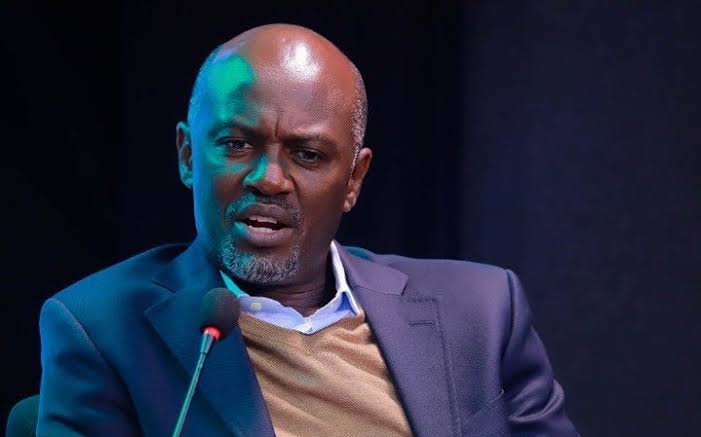If the President signs it, next stop will be Constitutional Court.

Andrew Mwenda (Photo courtesy of Nowviba.com)
COMMENTARY
By Joto La Jiwe
Andrew Mwenda, a veteran journalist and proprietor of The Independent magazine, has vowed to challenge the new “Kill the Gays” Bill in the Constitutional Court if President Yoweri Museveni signs it into law.
Mwenda issued the threat while appearing on NTV-Uganda on Thursday, two days after the Parliament of Uganda passed the infamous Anti-Homosexuality Bill 2023.
“If Museveni signs this Anti-Homosexuality Law, I promise you, I, Andrew Mwenda, I will go to the Constitutional Court to challenge it,” Mwenda said.
Andrew Mwenda is not a stranger to the issue at hand, having been one of the Ugandans who successfully petitioned against a similar bill nearly 10 years ago.
He has said his biggest concern is that, if enacted, the law would alienate Uganda from the Western world, something that is likely to affect the economy of the country as tourists and investors would shun Uganda in favour of other countries.
He questioned how the bill could be enforced, since homosexual activities are private “bedroom matters” where police can hardly reach.
“If I sit in the privacy of my bedroom with a fellow man who is also consenting, it means that the two of us will be consenting. Why do you want to criminalize that?” he wondered.
Since the passing of the bill, President Museveni and First Lady Janet Museveni have neither issued a statement or tweeted about the bill. A congratulatory or solidarity message to the members of parliament would be in order because the house, which is dominated by members of the ruling NRM party, simply supported what they thought the President and the First Lady supported.
Prior to the debate and passage of the bill in Parliament, Museveni and the First Lady used strong language against LGBTQI+ people. The President referred to them as deviants while the First Lady described them as sexual perverts and sick people who need help.
The possible next scenarios in efforts to kill the bill
Following the passing of the anti-gay bill, local and international human rights advocates seem to be putting pressure on President Museveni to veto the bill.
The fact that the President has not yet declared his intention to sign the bill, let alone set the date, may be a sign that he could be feeling the pressure and probably is considering the veto option.
The silence is not only at the State House; it is also being felt at the Uganda Media Center and the NRM secretariat, where none of his spokespersons or media Secretaries have “guided the nation” about what will come next.
If President Museveni ignores local and international pressure and signs the bill into law, the next real opportunity to kill the bill will be challenging it in the Constitutional Court. But unlike the Anti-Homosexuality bill 2013, which was overturned purely on procedural grounds i.e. being passed without a quorum, this time human rights advocates will have to be more creative, more aggressive and smarter in making their case against the current bill.
They will most likely base their arguments on the irregularities or illegalities within the bill itself. Experts have already identified weaknesses in the bill, saying that it abuses the constitutional rights of Ugandans, it violates international instruments to which Uganda is a signatory and jeopardizes the campaign against HIV/AIDS in the country.
Lessons from the Anti-Homosexuality Bill 2013
After signing the 2013 bill, President Museveni did not fight back when his own prime minister, Amama Mbabazi, not only disowned it on behalf of government but also challenged it.
He was the first to raise the issue of lack of quorum which later became the “magic bullet’ that killed the bill.
At the time, Mbabazi said:
“It (homosexuality) is unlawful already. So, to the extent that it is unlawful, and the attempt in this bill to repeat what is already unlawful, is not something we’ll support. Why? Why won’t we support it? Because it’s already covered.”
A weakness of this year’s anti-gay bill is that the Prime Minister, her deputies and a cohort of ministers did not take part in passing of the current bill — a gesture that is as bad as telling MPs that you want to be able to deny any involvement.
This could deny homophobes the witnesses they may need to save the bill if it ends up in court.
Joto La Jiwe, the author of this article, is a Ugandan correspondent for the African Human Rights Media Network. He writes under a pseudonym. Contact him at [email protected].
Source: African Human Rights Media Network member Erasing 76 Crimes.
COMMENTS